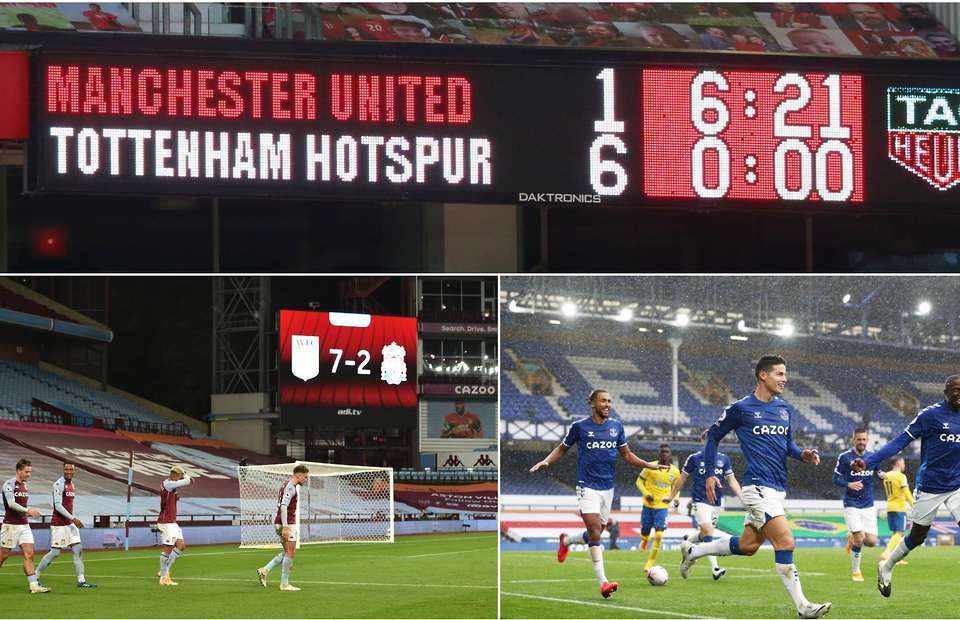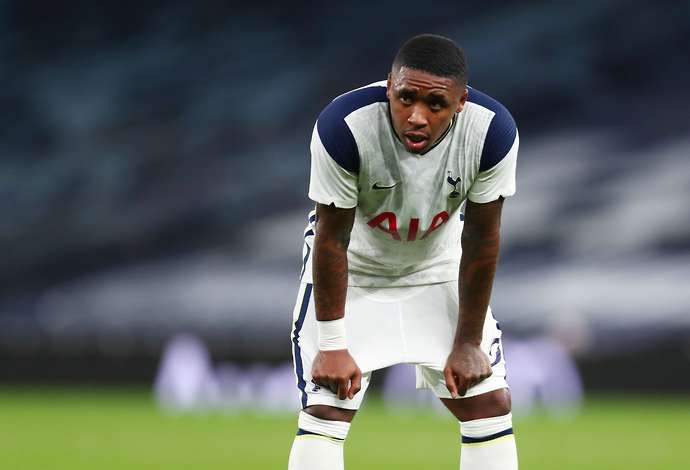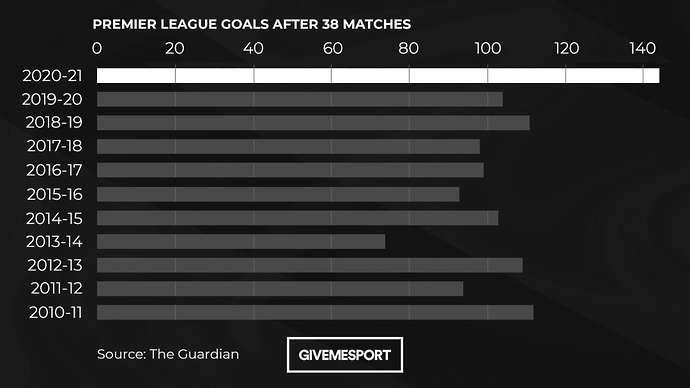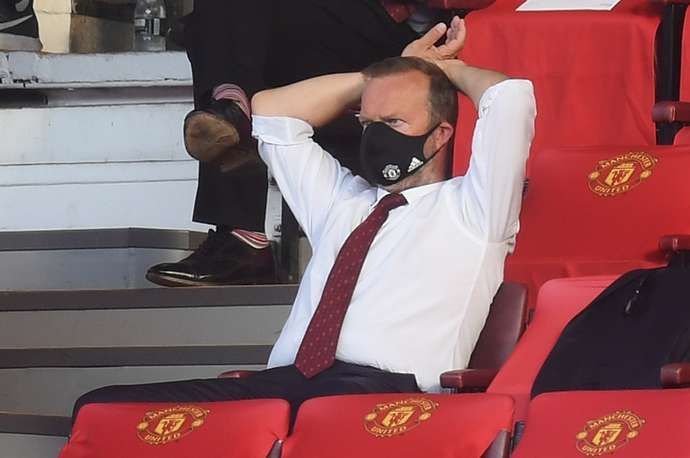Across the 38 Premier League games played so far, there’ve been a total of 144 goals — more than any other season at this stage over the past decade. Here’s seven reasons why it’s all gone a little mad.We’ve heard the phrase “unprecedented times” far too often this year. The coronavirus has affected almost every facet of our lives, to the point where the return of Premier League football has been welcomed back as some kind of sanctuary; a safe space in our living rooms that comes around every weekend, tucked well away from all the outside madness.But it seems even football can’t escape the absurdity of 2020. Not since the 1930s — when the ultra-attacking WM formation was all the rage — have we seen this many goals-per-game in an English top flight season. It all feels a bit mental, so here at GiveMeSport, we thought we’d take a look at why this season has been an absolute goal-fest so far.
Lack of time on the training pitch
First things first, it’s impossible not to mention the impact of the global pandemic. COVID has handed clubs a mere four weeks to prepare between one season ending and another starting, giving managers such little time with their players ahead of the new campaign.
On top of that, all international pre-season tours had to be cancelled, so squads haven’t even been able to train at altitude or go on team-building retreats. This has made it near impossible for players to reach full fitness, and even harder for new signings to bed-in and adjust to their new surroundings.
Hectic fixture lists
Another unfortunate consequence of COVID disruption has been the truncated fixture list. With a late start to the season and the Euros being moved to the summer of 2021, there’s a real sense of urgency to complete this current campaign in a shorter timeframe than usual.
Spurs, for example, have had to play two-to-three matches every week since the season commenced thanks to their European commitments, including midweek trips to destinations like Bulgaria and North Macedonia. Not exactly ideal preparation for a Premier League fixture on the weekend — unless you’re playing Manchester United, that is…
No fans in stadiums
It feels like an obvious point, but the absence of fans in stadia is no doubt having a strange impact on performance levels. One theory is that, without the added pressure and subsequent scrutiny of having fans on their backs, players are taking more risks; attempting more long-range shots, trying to thread more eye-of-the-needle passes, and lunging into more tackles prematurely.
Greater risk-taking invariably leads to higher chance-creation, which in turn leads to more goals. And while it’s to see nice players feel like they have more freedom without thousands of glaring stares raining down upon them, defensive coaches must be pulling their hair out.
Obsession with high-line defending
Staying on the topic of defending, we’ve all seen the feisty Keane vs Klopp debate over ‘sloppy’ defending, and will no doubt have sniggered at Richard Keys suggesting Pep Guardiola should lean on Sam Allardyce for some defensive tips, but jokes aside, high-line defending is leading to plenty of goals.
It’s not so much that Virgil van Dijk is a fraud, or indeed that no-one comes close to defensive standard-bearers of old like Paolo Maldini, but the tactical set-ups implemented by Klopp, Guardiola and co. just don’t lend themselves to acts of world-class defending. Playing a high-line is all about anticipation and preventing counter-attacks, but when it goes wrong — as seen in Man City vs Leicester — it can be disastrous.
Penalties, penalties and more penalties
No list explaining why the Premier League has gone goal-mad would be complete without mentioning VAR and the absurd new handball laws. As demonstrated by Joel Ward and Eric Dier, whether a handball is intentional or not is no longer a factor, while the idea of what is or isn’t an unnatural body position has become wildly subjective.
Thanks in no small part to the new law’s implementation, there have been a whopping 32 penalties so far this season in just 38 games. The law has since been reviewed and amended slightly, but it adds another key reason as to why we’re seeing such outrageous score lines on a weekly basis.
Mental fatigue
With everything that’s going on at the minute, people are naturally more on edge, and while some view players as robots, they’re no different to anyone else. They’re real humans, with real emotions.
From worrying about grandparents and not being able to see loved ones, to the emotions black athletes have to process on a daily basis, the mental toll of the current climate only adds more unwelcomed distractions when preparing for matches.
Fortunately, things like mental health and systemic inequality are starting to be spoken about more openly, but it’s still important to remember that we don’t know what’s going on in people’s personal lives. There are any number of factors that could be weighing heavy on a player’s mind when they take to the field.
The need to create a ‘brand’ of football
This is one that goes some way to explaining why many teams currently play with such a high defensive line. As much as we love football as a sport, the modern day game is undoubtedly a commercial product, with club owners obsessed with generating revenue and bringing in new sponsorship.
One way of doing that is by playing an attractive brand of football: attacking on the front foot and dominating possession. It’s part of what sponsors buy into. Look at Red Bull, for example: the company owns a handful of clubs who all play in a distinct way — high-energy, fast tempo, aggressive pressing — something which mirrors the effects of their energy drink.
If the majority of Premier League clubs look to play an attacking brand of football, it creates a higher chance of seeing end-to-end games and, you guessed it, more goals.






















